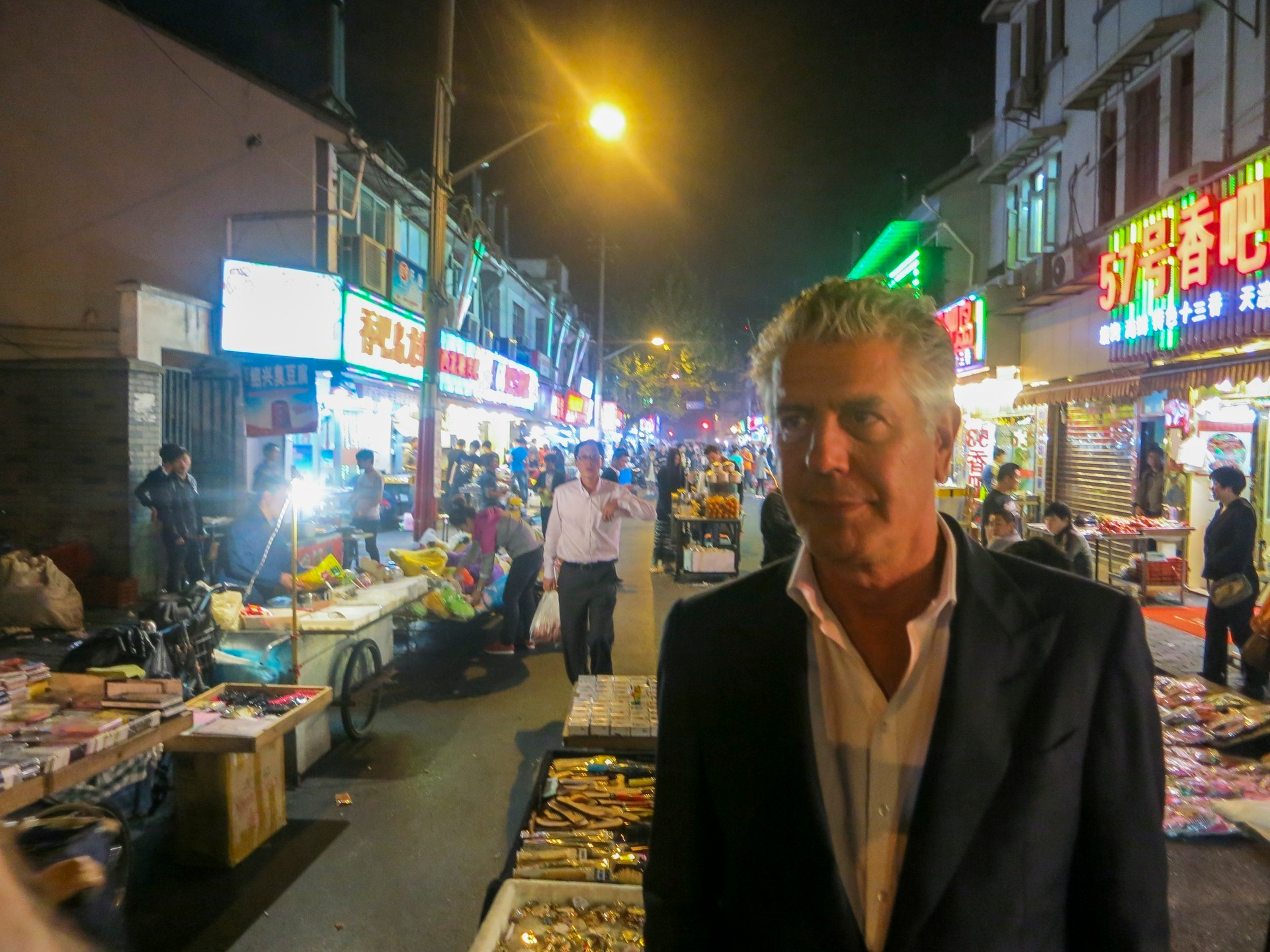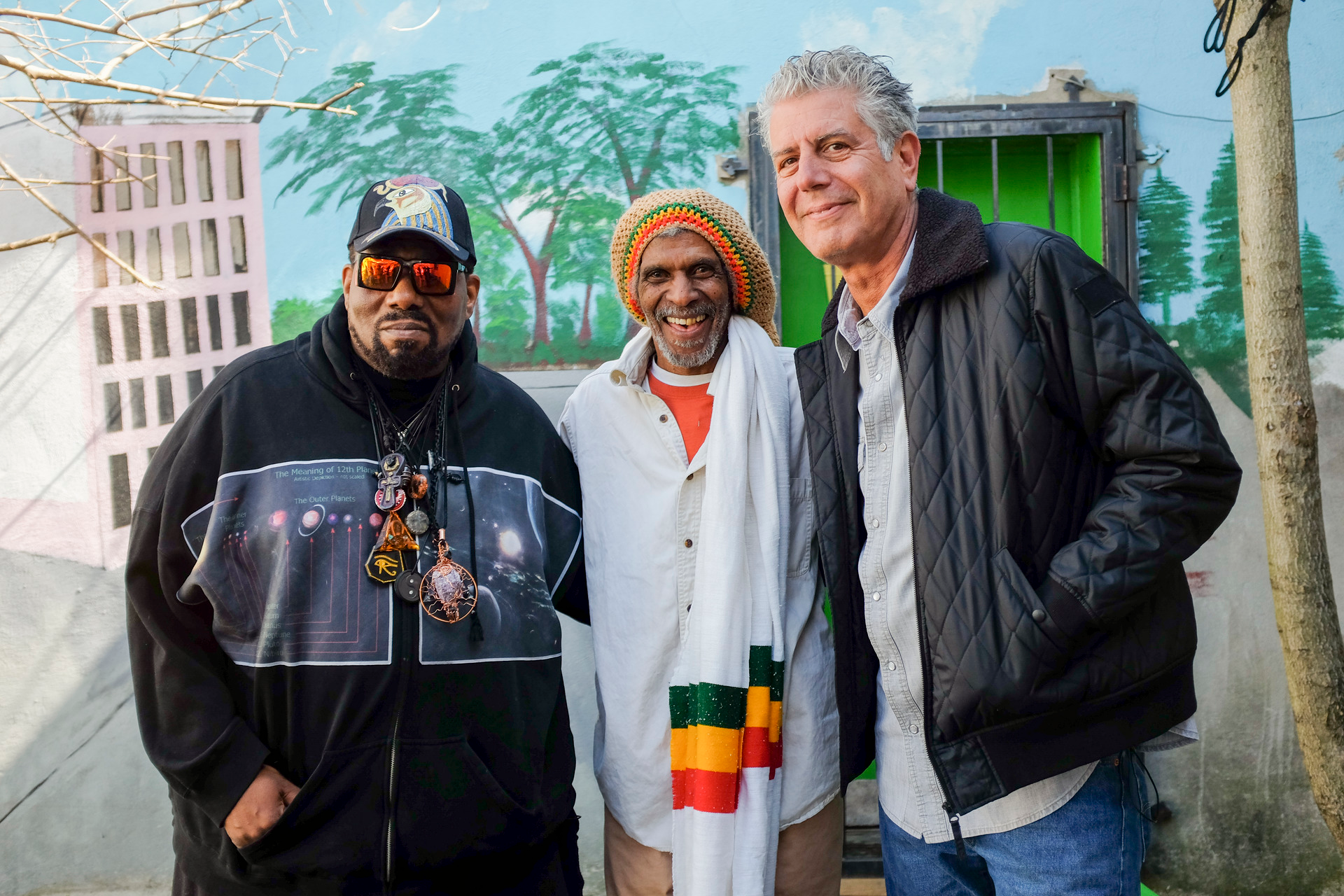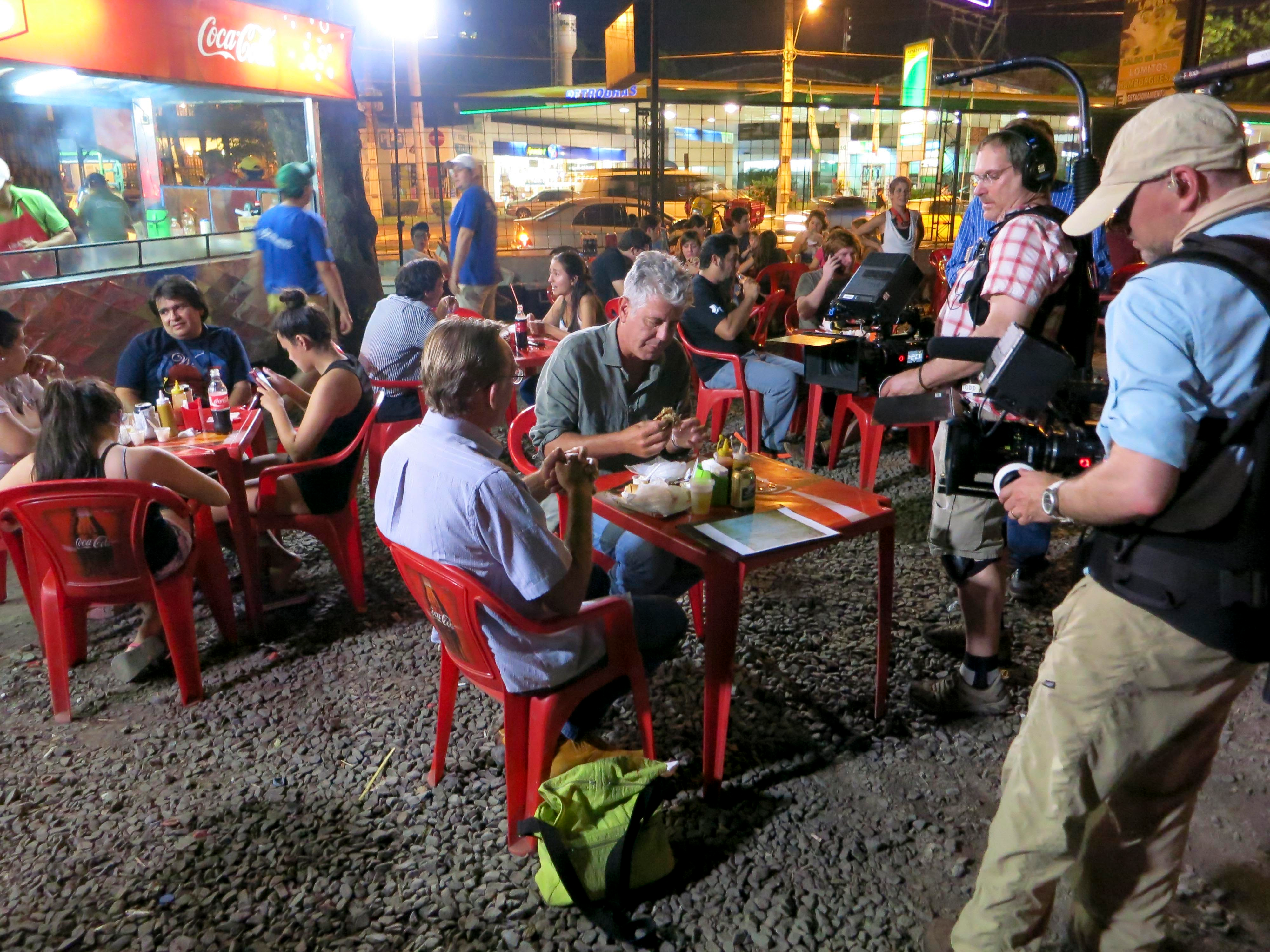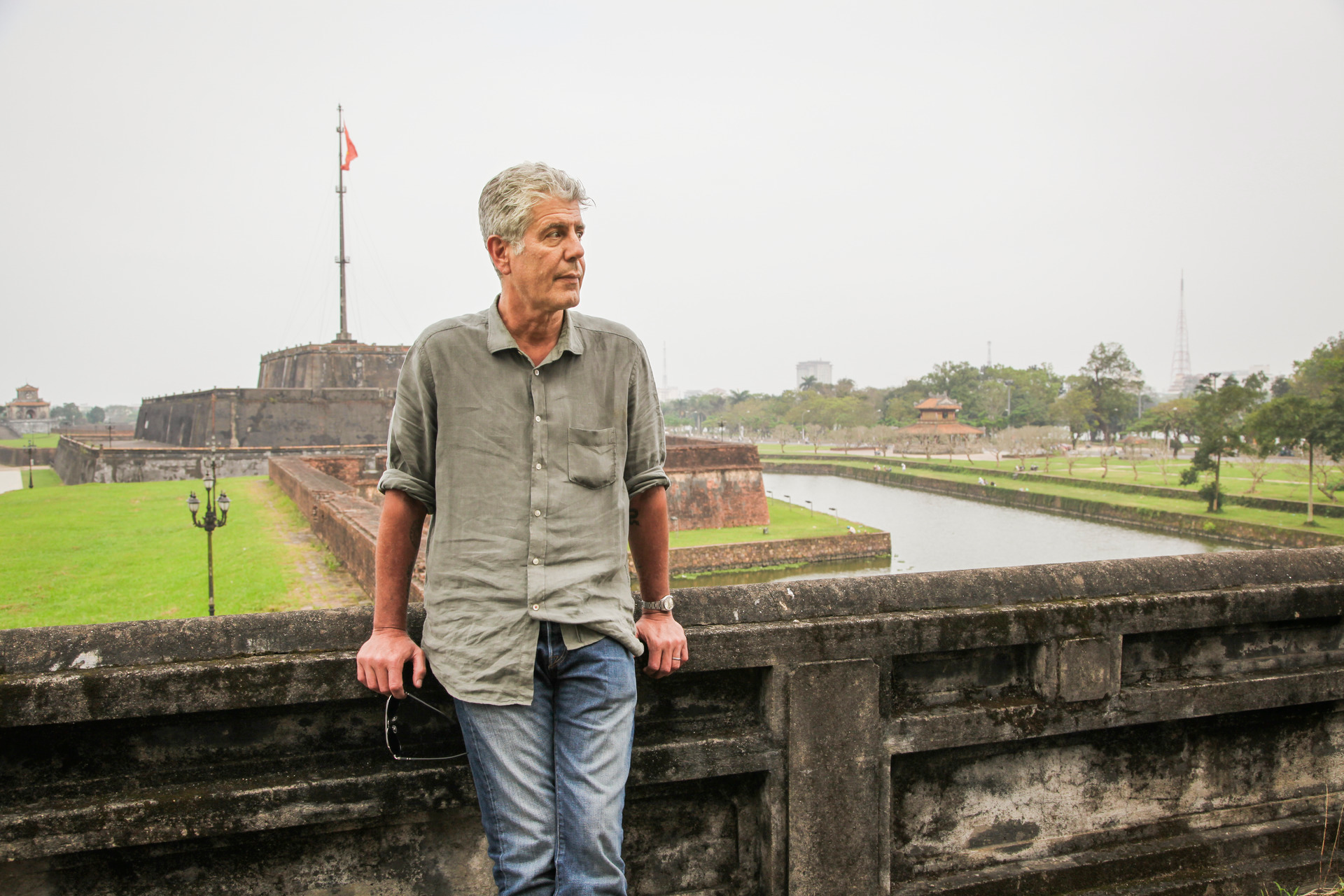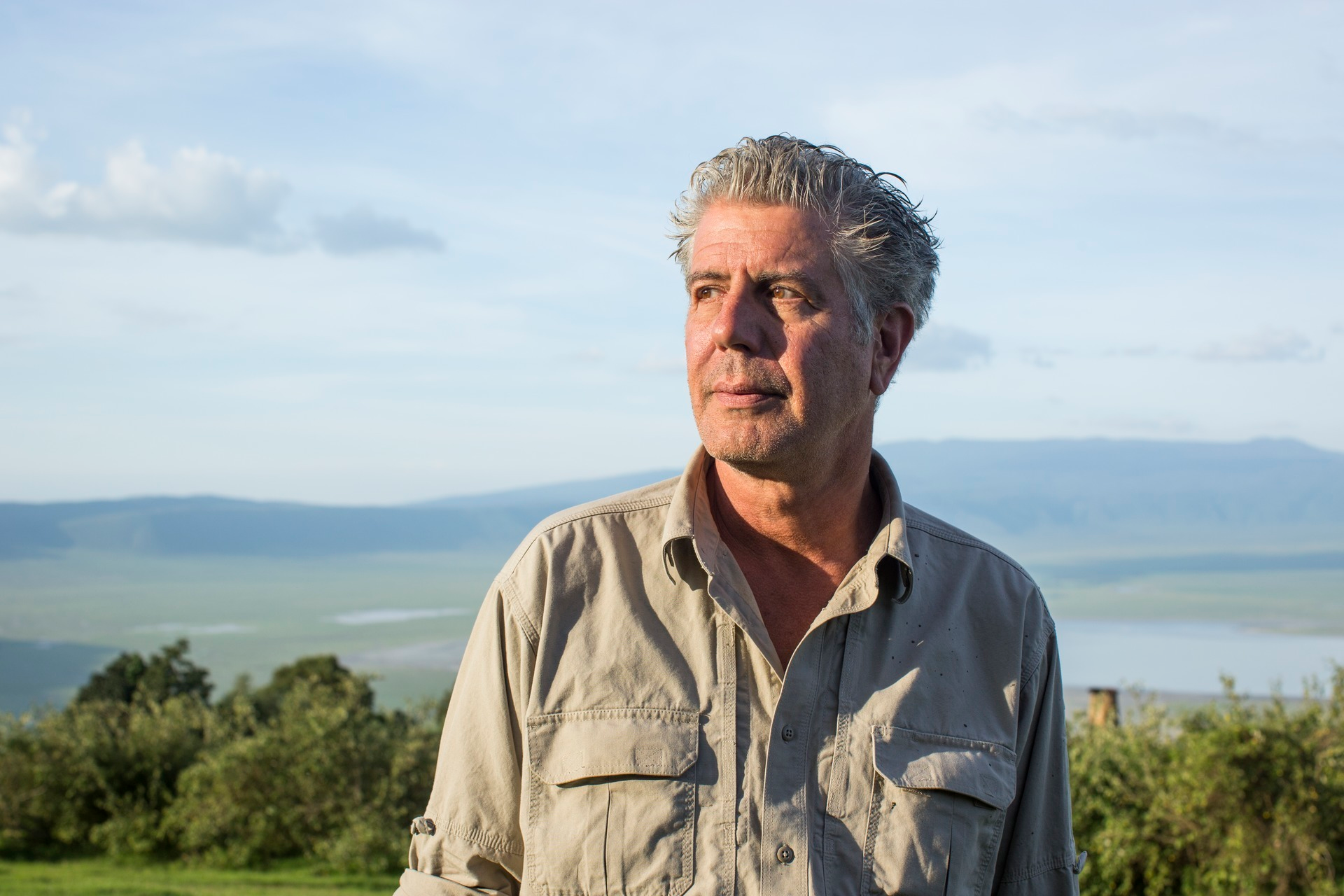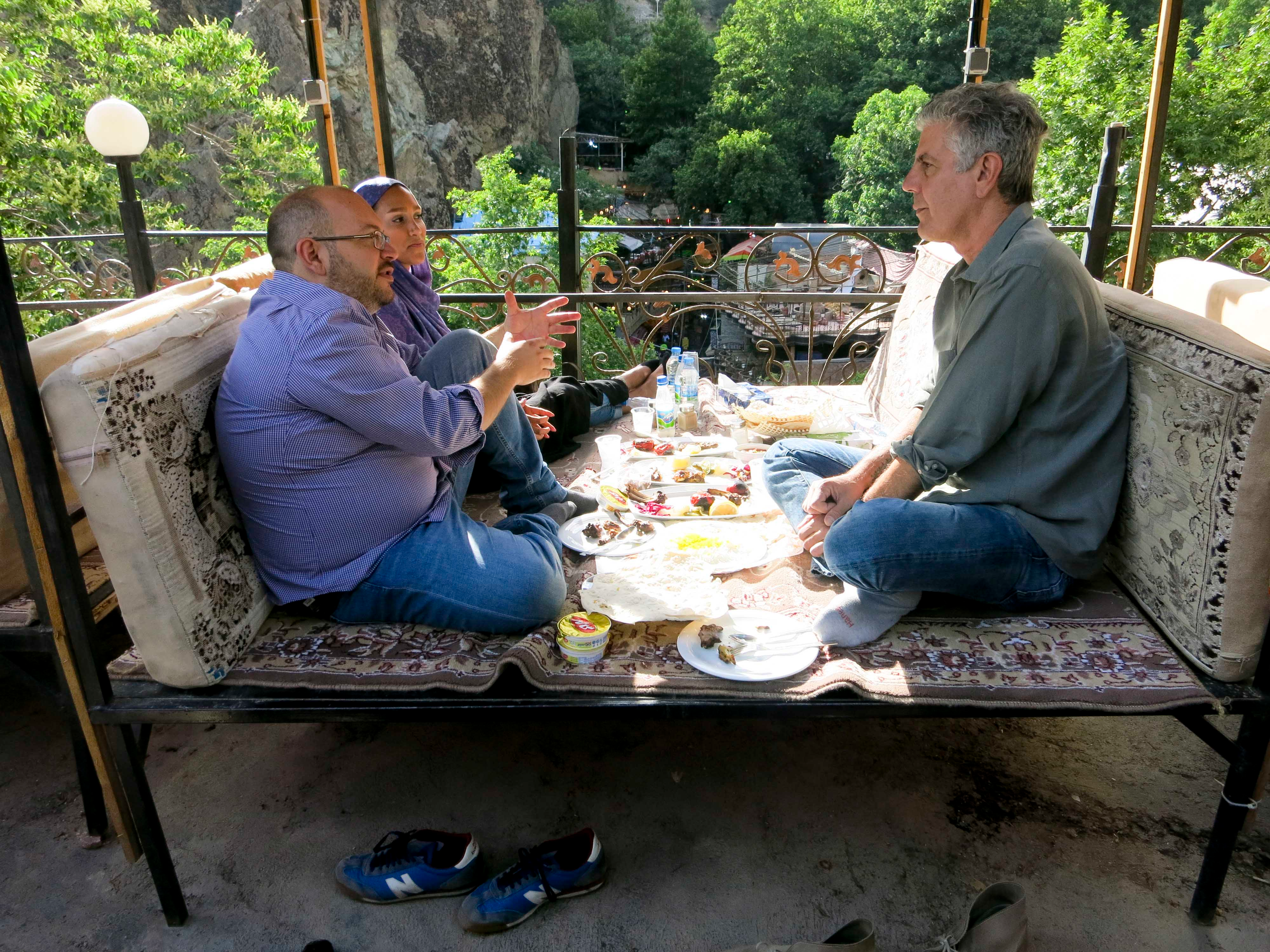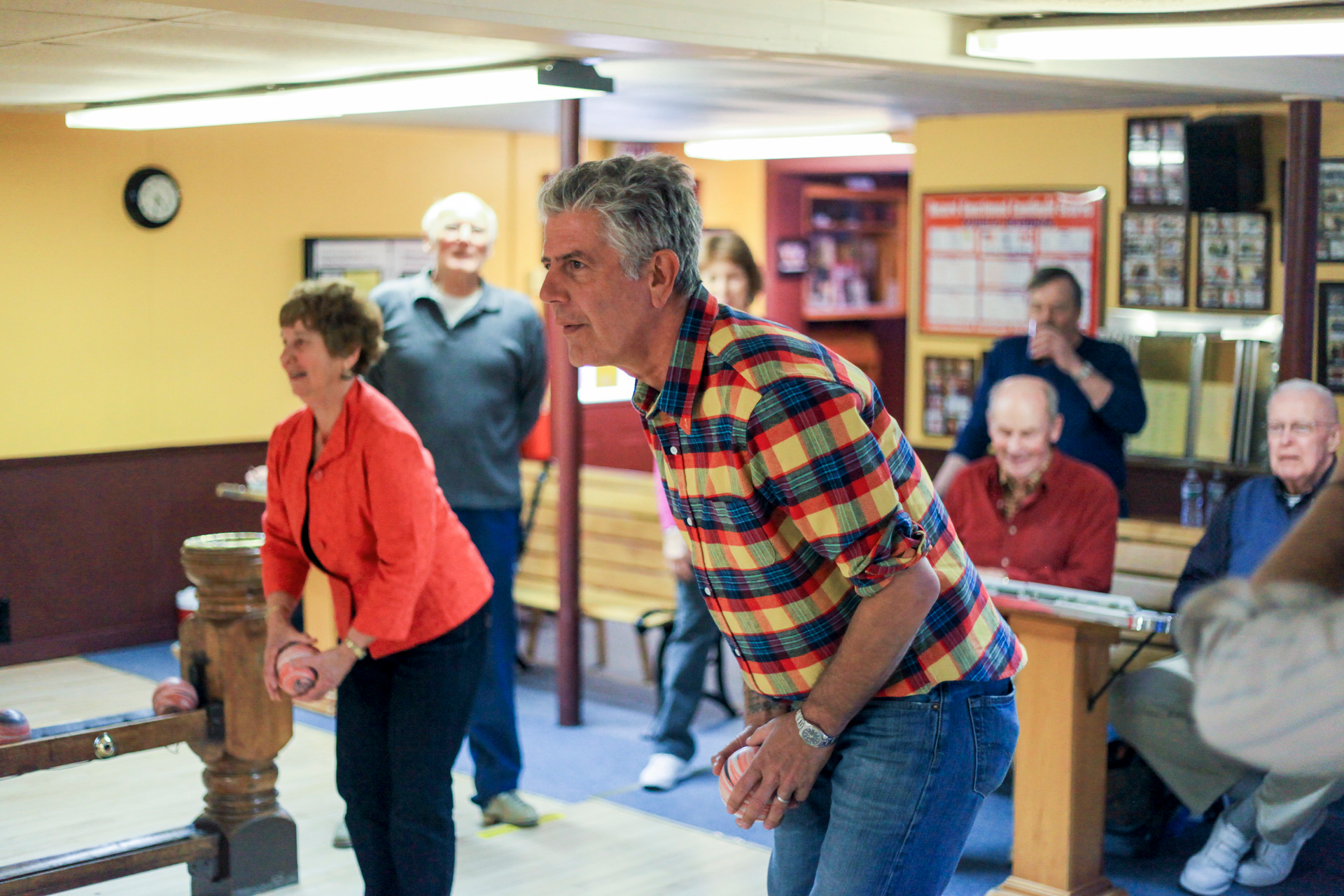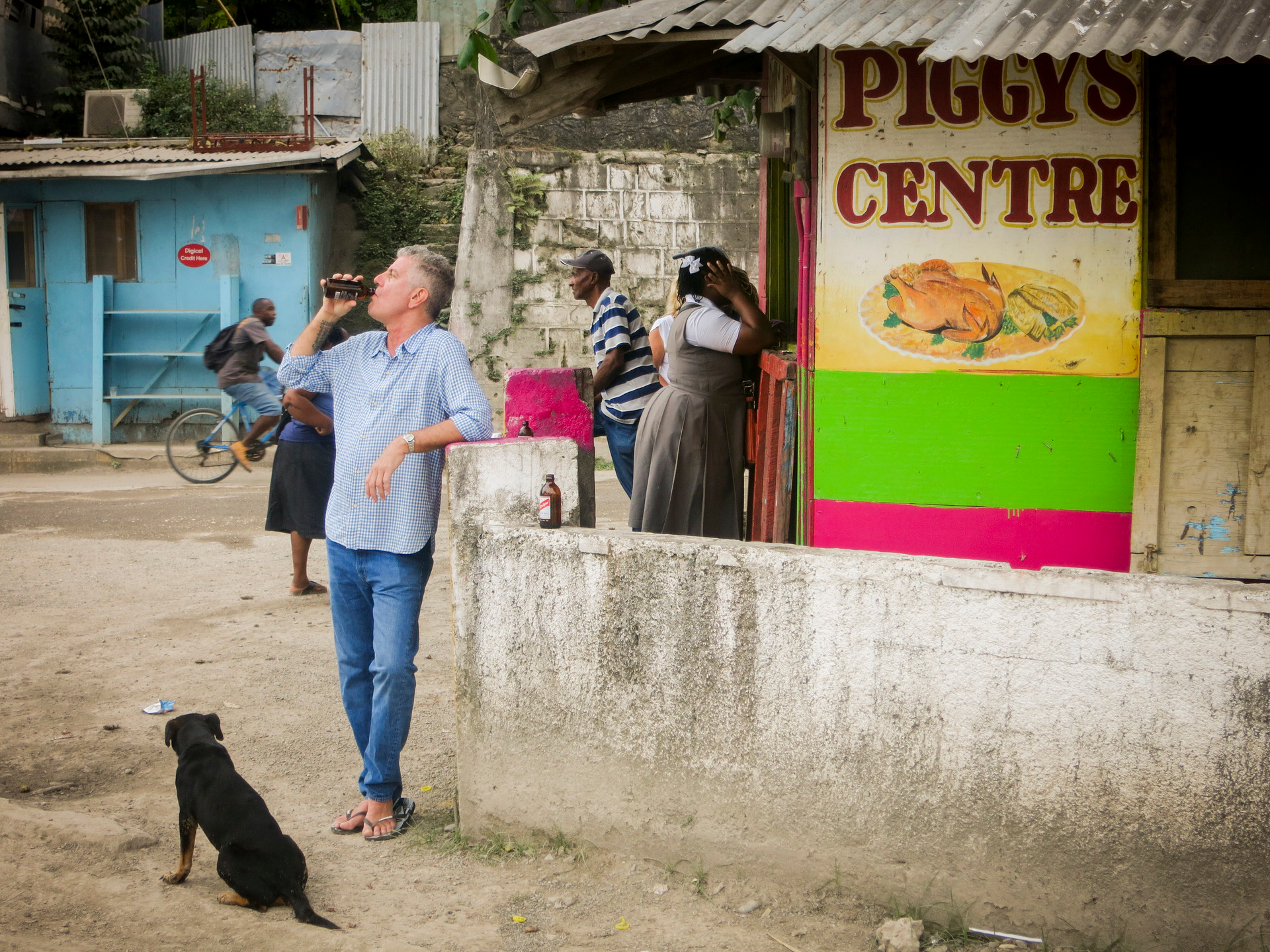Parts Unknown, Season 4: It Burns, Mommy, It Burns
"I was put on earth to do this," Bourdain says early in the first of two trips he'll take to Vietnam for Parts Unknown. What's the this? "Eat noodles right here." The noodles may be destiny, but there's a similar sense of immediacy throughout this season. Corners rounded in Shanghai, caught on security footage. A hunt for the story of a mysterious relative. A long hoped-for visit to Iran. Adventure awaits.
Episode 1: Shanghai
The itinerary: "The one thing I know for sure about China is I will never know China," Bourdain says, before saying that one of its joys is "a learning curve that's impossibly steep." One of several episodes of the series strongly influenced by the work of director Wong Kar-Wai (and his cinematographer and frequent collaborator Christopher Doyle, who would later join Bourdain for a memorable episode in season 11), this is a fantastic-looking hour of TV, using some elements of Wong's visual language to set the tone and mood. That language tells us when Bourdain is somewhere he belongs. It reminds us that he's somewhere where one can't be sure they're not being observed. It isolates him. It communicates inner stillness or shiftlessness. It's not all style, however: Whether isolated from or connected to others, Bourdain continues to attempt to "know China," at least in part, and every so often, manages to clasp his fingers around some small corner of its complexities and contradictions.
Looks delicious: Just look at this, one of several effusive descriptions Bourdain gives of xiao long bao, the soup-filled dumplings that are perhaps Shanghai's most famous culinary export: "As they're steamed, the delicious, delicious fat renders into a soup of the gods, which then, if you're not careful, causes maxillofacial damage, as it changes your life forever." He also calls them "ballistically designed delivery vehicles for pure pleasure." We're fairly certain they were enjoyed.
Episode 2: The Bronx
The itinerary: Bourdain visits "the never-visited borough in New York City," which he calls a "magical place." Bourdain would probably use that term even it weren't the birthplace of hip-hop. Like season nine's "Queens," it's an episode that is as much Bourdain introducing the world to a culture-rich segment of his hometown as it is him introducing himself to a somehow-unexplored corner of the city he's called home for decades. Hip-hop necessarily soundtracks the hour, but the energy of the episode isn't bombastic or bold. It's Bourdain filling in, for himself, the space "between Yankee Stadium and the Bronx Zoo," and filling in, for the uninformed out there, the origins of and trailblazers behind what has become one of the defining American art forms. Curious, enthusiastic, and just a touch shame-faced—that's the episode's energy. The Bronx's energy, as Parts Unknown makes clear, is all its own.
Looks delicious: A previously undiscovered paradise of meat—"the center of the pork universe," a.k.a 188 Bakery Cuchifritos—particularly delights Bourdain, but the hot pastrami and potato pancakes at Liebman's Deli also appeal. And hey, if you've never seen a White Castle before, you have now.
Episode 3: Paraguay
The itinerary: And now for something completely different. The lens through which Bourdain enters this episode is the lens of the private eye, applying a thin veil of neo-noir to an hour in which the host and several private detectives attempt to track down Jean Bourdain, his great-great-grandfather, who hightailed it to South America and disappeared. (This is his second time chasing Jean on television; the first outing, with his brother Chris, can be seen in an Uruguay-centric episode of No Reservations.) It's playful, personal, and undeniably stylish. In another season of Parts Unknown, it would be an obvious standout; in this, one of the show's most assured seasons, it somehow sits in the middle of the pack.
Looks delicious: This section is intended to pin down the dish or meal with proves to be most appetizing, special, or otherwise memorable, based on the footage, the story, and Bourdain's reaction. But here, this writer will indulge herself in one of very few intrusions of the personal you'll find in these pages: I would walk through fire for empanadas like those featured in this episode.
Episode 4: Vietnam
The itinerary: "Fellow travelers, this is what you want," Bourdain says early in "Vietnam," one of two episodes of Parts Unknown that see him travel to a country he says stole his heart. "This is what you need," he continues. "This is the path to true happiness and wisdom." That happiness is part of what makes the two Vietnam-set episodes so affecting. This is the lesser of the pair not because of some flaw or absence, but because the still-to-come installment in the show's eighth season is so extraordinary. The path to true happiness and wisdom lies between tiny plastic stools, cold local beers, and bowls of shop delicacies, through open-air markets and past palaces and tombs. It's not an unrelentingly cheerful episode—the word "ghosts" is used with great frequency, and the specter of war lingers at the edge of the frame—but Bourdain's contentment and enthusiasm are infectious.
Looks delicious: "It's all downhill from here," says the delighted host after eating bun bo Hue, the fantastically pungent beef and bone noodle soup flavored with lemongrass.
Episode 5: Tanzania
The itinerary: Parts Unknown rightly assumes that many Americans will know next-to-nothing about Tanzania, and somehow manages to make this episode both as enjoyably meandering as other episodes of the series, and an efficient introduction to a beautiful place. Much ground is covered: history, legacy, religion, revolution, the past, the future, the food (of course), even the beautiful doors. Never does it feel like an encyclopedia come to life. The approach to showing the country mirrors the approach to educating the viewer about it, as the crew visits the city, the shore, and the Serengeti; that the episode somehow resists the urge to make it all about the zebras and giraffes is impressive. The episode also has the highest quotient of irresistibly adorable children of any episode of Parts Unknown. Cute kids, as far as the eye can see. Another very strong episode in a very strong season.
Looks delicious: Many gorgeous skewers are feasted on at night, but in an episode and an evening where everything makes the mouth water, the Zanzibar pizza nevertheless stands out.
Episode 6: Iran
The itinerary: "It wasn't supposed to be like this," Bourdain says in voiceover as "Iran" begins. It's a phrase we typically associate with disaster, with things gone horribly wrong. As ever, Bourdain is a very good and honest writer; he knows how to communicate surprise, in more ways than one. It's the warmth that surprises him. But he doesn't pretend not to see the "Down with the U.S.A." mural occupying the side of a building, and the story—one of Parts Unknown's most complex—is one of tremendous cognitive dissonance.
Looks delicious: "The food here is amazing," Bourdain says, staring down what he calls "the king of kebabs." It's the very first thing he eats.
> Read more about "Iran" in our list of Parts Unknown's most essential episodes.
Episode 7: Massachusetts
The itinerary: "This is where I bought my first bag of heroin." How's that for an opening line? One of the most distinctive episodes of the series sees Bourdain offering a personal tour of a kind, visiting the beach where he had his first "everything," pointing out the window of his bedroom in one beachside home where he spent a "golden time." It should go without saying that even for a guy comfortable sharing his experiences on camera, this is an intensely personal episode.
Looks delicious: Portugeuse-influenced dishes like stuffed cod and the fragrant-looking kale soup called caldo verde. There's also a clambake with lobster and chowder, but that seems like too obvious (and obviously delicious) a choice.
> Read more about "Massachusetts" in our list of Parts Unknown's most essential episodes.
Episode 8: Jamaica
The itinerary: If the opening moments of this episode don't make you smile, our condolences are sincere. A playful faux title sequence (the title in question being Rum Lives Forever, directed by Alan Smithee) sets the tone for the episode, which wears the influence of the James Bond franchise on its sleeve. That Bond energy—with some absurd twists—seems to suit Jamaica as tourists understand it and the super-rich see it. They visit the late Ian Fleming's estate, fittingly called Goldeneye. A Port Antonio billionaire arrives by helicopter. While catching crabs in the traditional manner, one of the men in Bourdain's party says, "We want him alive. We have questions. Where are your friends?" Artifice, right?
But there's another side of Jamaica, and the episode explores that, too. "Who owns paradise after all?" Bourdains asks. "Who in the end gets to own paradise, use paradise, or even visit it? That's a question that's probably worth paying attention to, before there's none left at all."
Looks delicious: Bourdain on jerk sauce: "It's brown, it's murky, and it burns, Mommy, it burns."
